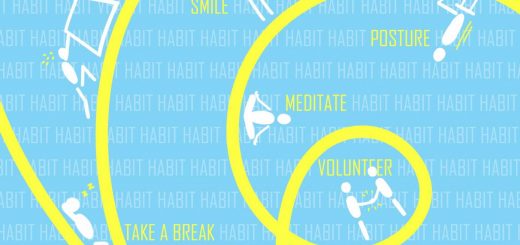How Conant students are battling sleep deprivation
The paper due this Friday, sports practice, the math quiz tomorrow, and work after school on Thursday. These thoughts buzz through the head of a high school student as he finally finds the time to sit and work on his assignments. He knows he will stay up working late into the night. His eyes are already drooping, and his head is already throbbing after a long day at school and a grueling afternoon practice. This is the reality for him almost every day. To give himself an extra boost of energy, he cracks open a can of Redbull.
With school, work, and relationships beginning to consume more and more time from teenagers, getting a good night’s sleep has become less of a priority. According to Nationwide Children’s Hospital, the average amount of sleep that teens get has fallen significantly below the nine and a quarter hour recommendation.
The effects of sleep deprivation are much more serious than many people think. According to WebMD, sleep deprivation can lead to a number of short term health consequences including memory problems, weight gain, and irritability. In addition, experts are beginning to find connections between lack of sleep and more serious health issues like diabetes and high blood pressure. Research has also connected sleep deprivation with mental health problems like anxiety and depression.
“Some people don’t realize the negative effects sleep deprivation can have on them,” psychology teacher Jennifer Stearns said. “There’s a lot of students that work really hard and want to be successful, but they’re doing that at the sake of their health.”
Good sleep may even play a vital role in academic performance. Sleep-deprived students are proven to perform worse than students who sleep well. “[Many sleep deprived students] can’t focus, they can’t pay attention, and they can’t make the material stick in their head,” Stearns added.
Students agree that lack of sleep can affect them negatively in school. “When I stay up for a long period of time, I cannot focus in school the next day,” Venisha Ranpura, ‘20, said. “The only thing on my mind is sleep. I can’t focus on my lecture, test, or quiz.”
Surprisingly, some students are able to balance an adequate sleep schedule with the rigorous course load in high school.
“I usually get around eight hours of sleep a night,” Sam Gosche, ‘20, said. “I take advantage of free time in school along with starting work as soon as I get home,” Gosche said. Gosche is a two sport athlete, takes AP classes, and is in Jazz Band. He says his trick is using his time effectively, and using TV and video games as an incentive. “I make sure I don’t use those forms of entertainment until my work is done,” he said.
Stearns added that “[students need to focus on] time management. They need to make a plan and prioritize what they need to get done, and set aside time to do it.”
However, school-related activities are not the only factors leading to a lack of sleep among students. One common example is that students work jobs during the evenings, forcing them to do their work late at night.
In addition, it has been proven that the use of technology before bed can negatively affect the quality and quantity of sleep. According to the National Sleep Foundation, “TVs, tablets, smartphones, laptops, or other electronic devices before bed delays your body’s internal clock, suppresses the release of the sleep-inducing hormone melatonin, and makes it more difficult to fall asleep.”
All of these factors contribute to making it difficult for students to go to bed at a reasonable time and feel rested during the day. Fortunately, there are many things students can do to get better sleep. To start, students must become internally motivated to get their work done free of distractions. “Some students use motivators, for example, getting two classes done and then taking a break,” Stearns said.
Although it may be disheartening to hear, abstaining from technology before bed may be the most effective way to increase sleep, even though this can be extremely difficult for Conant students who rely on technology for school work.
“[It is important to] shut off the electronics and put them in a place where you can’t reach them while you’re in bed,” said Conant nurse Dawna Smeltzer. “When it’s time for bed, go to bed; if there’s no stimulation, then you’re more likely to fall asleep and get into a deeper sleep.”
The connection between sleep deprivation and technology use is not unique to students. Smeltzer said that “adults and teachers are just as guilty for staying up on social media.”
Additionally, students can employ proven techniques to better their sleep. These include going to bed at the same time every night, getting up at the same time each morning, and making sure their bedroom is quiet, dark, and relaxing.
Unfortunately, school, jobs, sports, and activities will continue to pose a threat to a good night’s sleep for people of all ages. The good news is that students can make an effort to change their behavior in ways that promote a healthy sleep schedule. “Just try going to sleep at a reasonable time,” Stearns suggested. “I see students try it, and after a month they are feeling much better.”




Recent Comments